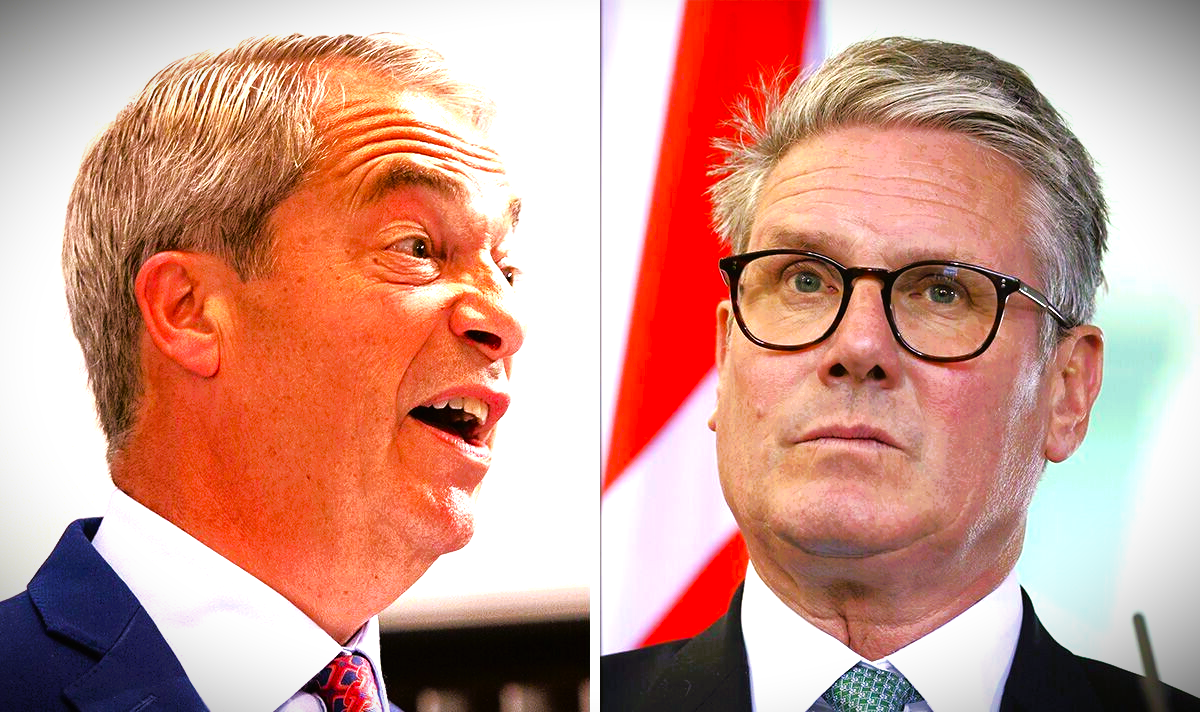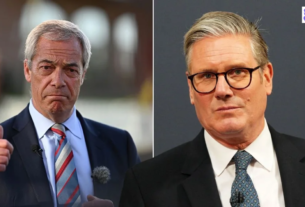UK Prime Minister Keir Starmer has launched a direct and unusually strong attack on Nigel Farage, leader of the Reform UK party, accusing him of proposing economically reckless policies that could severely damage the country. In a speech delivered at a glass factory in northwest England, Starmer compared Farage’s tax-cutting plans to the failed approach of former PM Liz Truss, whose policies caused financial turmoil in 2022.
Farage recently announced costly proposals, including major income tax cuts and the reinstatement of a winter fuel payment for retirees. The Institute for Fiscal Studies estimates these plans could cost between £50–80 billion annually. Starmer warned voters that Farage’s promises were unfunded and dangerous, calling them a “mad experiment” that risks family finances and mortgages.
Reform UK has gained momentum, winning control of 10 local councils in recent elections and rising to second place in some national polls, ahead of the Conservative Party. Although it holds only five seats in Parliament, Reform is gaining support among disaffected working-class voters, many of whom previously backed Labour.
Farage, known for his populist style and connection to former U.S. President Donald Trump, dismissed Starmer’s comments from a cryptocurrency event in Las Vegas, calling the attacks “dirty tricks.” Reform UK Chairman Zia Yusuf said Labour’s response showed the government is “panicking.”
In response, Starmer emphasized his own working-class roots, pushing back against Farage’s “man of the people” image and asserting that he understands the concerns of working families through lived experience.
With the next general election due by 2029, the confrontation signals a shift in British politics, where Labour now sees Reform UK as a growing threat—not just the Conservatives. The political landscape is evolving into a three-way contest that could reshape the country’s future.




